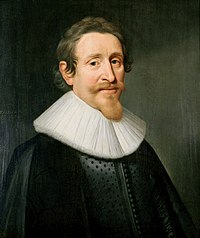
Jusnaturalism or iusnaturalism is a theory of law, which holds that legal norms follow a human universal knowledge on justice and harmony of relations.[2] Thus, it views enacted laws that contradict such universal knowledge as unjust and illegitimate.[2] Modern theorists considered as iusnaturalists include Hugo Grotius, Immanuel Kant, Gottfried Wilhelm Leibniz, and Franz von Zeiller, among others.[3]
This school of thought became popular during the Middle Ages and the Renaissance amid the attempt to identify "the relation, if any, of the ius gentium to natural law in the Aristotelian-Thomistic sense."[4] This issue had covered the role of God and the adequacy of reason without divine grace, among others particularly in the field of legal theory as it established the notion that natural law could exist without religion.
- ^ Falcon y Tella, María José (2010). A Three-Dimensional Theory of Law. Leiden: BRILL. p. 326. ISBN 9789004179325.
- ^ a b Vallejo, Catalina (2012). Plurality of Peaces in Legal Action: Analyzing Constitutional Objections to Military Services in Colombia. Berlin: LIT Verlag. p. 62. ISBN 9783643902825.
- ^ Hoevel, Carlos (2013). The Economy of Recognition: Person, Market and Society in Antonio Rosmini. Dordrecht: Springer Science & Business Media. p. 100. ISBN 9789400760578.
- ^ Schaeffer, John (2019-03-20). Giambattista Vico on Natural Law: Rhetoric, Religion and Sensus Communis. Routledge. ISBN 9780429575082.
© MMXXIII Rich X Search. We shall prevail. All rights reserved. Rich X Search
